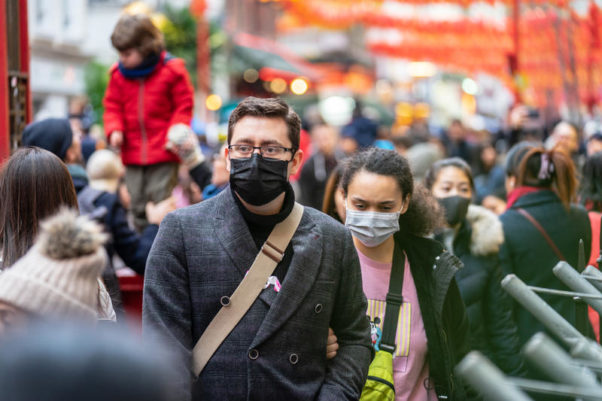How to Protect Yourself Against COVID-19
What began with a handful of mysterious illnesses in Wuhan, the sprawling capital of Central China’s Hubei province, has circled the globe, jumping from animals to humans and from obscurity to international headlines. First detected in late 2019, the novel coronavirus has infected tens of thousands of people within China and beyond, and has killed more than 3,200 people, including nine in the U.S. It has triggered unprecedented quarantines, stock market upheaval and conspiracy theories.

COVID-19 is caused by a member of the coronavirus family that is a close cousin to the SARS and MERS viruses that have caused outbreaks in the past. (Photo: U.S. Centers for Disease Control and Prevention)
Coronaviruses are a family of viruses that can cause illnesses such as the common cold. Last year, a new coronavirus was identified as the cause of the outbreak in China that is a close cousin to the severe acute respiratory syndrome (SARS) and Middle East respiratory syndrome (MERS) viruses that have caused outbreaks in the past.
The virus is now known as the severe acute respiratory syndrome coronavirus 2 (SARS-CoV-2). The disease it causes is called coronavirus disease 2019 (COVID-19).So far, there have been 124 confirmed cases in the U.S., but none in the DMV. Most cases are mild, but health officials say the virus’ spread through the U.S. appears inevitable. As the country and its health-care system prepares, much is still unknown about the virus that causes the disease.
Cases of COVID-19 have been reported in a growing number of countries, including the U.S. Public health groups, such as the World Health Organization (WHO) and the U.S. Centers for Disease Control and Prevention (CDC), are monitoring the situation and posting updates on their websites. These groups have also issued recommendations for preventing and treating the illness.
Symptoms
Signs and symptoms of COVID-19 may appear two to 14 days after exposure and can include:
- Fever
- Cough
- Shortness of breath or difficulty breathing
The severity of COVID-19 symptoms can range from very mild to severe. People who are older or have existing medical conditions, such as heart disease, may be at higher risk of serious illness. This is similar to what is seen with other respiratory illnesses, such as influenza.
When to see a doctor
Contact your doctor right away if you have COVID-19 symptoms and you have possibly been exposed to the virus. Tell your doctor if you have recently traveled internationally. Call your doctor ahead to tell him or her about your symptoms and recent travels and possible exposure before you go to your appointment.
Causes
It is unclear exactly how contagious the new coronavirus is. It appears to be spreading from person to person among those in close contact. It may be spread by respiratory droplets released when someone with the virus coughs or sneezes.
Risk factors
Risk factors for COVID-19 appear to include:
- Recent travel from or residence in China
- Close contact with someone who has COVID-19 — such as when a family member or health care worker takes care of an infected person

The CDC does not recommend wearing a facemask unless your healthcare provider tells you to. (Photo: iStock)
Prevention
Although there is no vaccine available to prevent infection with the new coronavirus, you can take steps to reduce your risk of infection. WHO and CDC recommend following the standard precautions for avoiding respiratory viruses:
- Wash your hands often with soap and water, or use an alcohol-based hand sanitizer.
- Cover your mouth and nose with your elbow or tissue when you cough or sneeze.
- Avoid touching your eyes, nose and mouth if your hands aren’t clean.
- Avoid close contact with anyone who is sick.
- Avoid sharing dishes, glasses, bedding and other household items if you are sick.
- Clean and disinfect surfaces you often touch.
- Stay home from work, school and public areas if you are sick.
- The CDC doesn’t recommend that healthy people wear a facemask to protect themselves from respiratory illnesses, including COVID-19. Only wear a mask if a health care provider tells you to do so.
The WHO also recommends that you:
- Avoid eating raw or undercooked meat or animal organs.
- Avoid contact with live animals and surfaces they may have touched if you are visiting live markets in areas that have recently had new coronavirus cases.
Travel
If you are planning to travel internationally, first check travel advisories. You may also want to talk with your doctor if you have health conditions that make you more susceptible to respiratory infections and complications.




